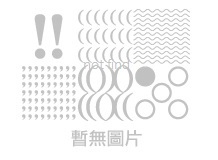 1收藏
1收藏

 二手徵求有驚喜
二手徵求有驚喜
定價:NT$ 1100
優惠價: 93 折, NT$ 1023
限量商品已售完




Modern architecture has become increasingly concerned about the integration and harmony between the natural and built environments. Terms like environmental protection and management, energy conservation, renewable energy, sustainability and ecology have been pouring into our ears on a daily basis. In fact, all these concepts are not new from an ancient Chinese point of view; Feng Shui or more academically, Kan Yu, is exactly the traditional Chinese wisdom aimed at creating harmony between the environment, buildings and people.
Feng Shui is the philosophy which has influenced traditional building design in China for thousands of years. Based on Scientific Feng Shui for the Built Environment: Fundamentals and Case Studies published in 2011, this enhanced new edition has further taken into account the enhancements and new inputs in theories and applications. Emphasis is placed on two themes, sustainability and science. New case studies regarding sustainable design as viewed from a Feng Shui perspective, and integrated applications of different architectural models and their associations with Feng Shui concepts are added and elaborated. On science, other than exploring the new development of particle physics in relation to Feng Shui studies, a totally new approach to numerology and Luo Shu study based on modern linear algebra may bring readers new insight into the possibility of researching Feng Shui mathematically, in addition to the use of spherical trigonometry.
This book offers a remarkable in-depth view of Feng Shui by integrating the historical theories with scientific explorations and examples of applications. It once again demonstrates that Feng Shui can be studied scientifically, and eventually scientific Feng Shui may become a new field of science in the academic world as well as a professional and orthodox discipline of architectural design for the built environment.
作者簡介:
Dr Michael Y. MAK
He is a Senior Lecturer and Program Convenor for the postgraduate property programs at the School of Architecture and Built Environment, the University of Newcastle, Australia. He has been teaching in architecture, building, construction management and property courses in Australia, Singapore and Hong Kong. Michael is the co-founder of the International Conferences on Scientific Feng Shui and the Built Environment, and was the Chair of the Technical Committee of the Conference from 2005 to 2009. He is also the founding editor of the Academic Journal of Feng Shui (www.AJoFengShui.co.nf) since 2013, which is a peer-reviewed open-access online journal that publishes original research articles in all aspects of Feng Shui.
Dr Albert T. SO
CEng, FCIBSE, FIMechE, FSOE, FIPlantE, SMIEEE, SCME, is the founder and was the Chairman of the Organizing Committee of the International Conference series on Scientific Feng Shui and the Built Environment conducted at the City University of Hong Kong from 2005 to 2009. He is an electrical and building services engineer by profession and had been Lecturer/Associate Professor/Adjunct Professor of the City University of Hong Kong. He is now Honorary Visiting Professor of the University of Northampton in England and Honorary Associate Professor of the University of Hong Kong. Currently, he is Vice President of Asian Institute of Intelligent Buildings and Director of Asian Institute of Built Environment promoting education and research related to the built environment.
退換貨說明:
會員均享有10天的商品猶豫期(含例假日)。若您欲辦理退換貨,請於取得該商品10日內寄回。
辦理退換貨時,請保持商品全新狀態與完整包裝(商品本身、贈品、贈票、附件、內外包裝、保證書、隨貨文件等)一併寄回。若退回商品無法回復原狀者,可能影響退換貨權利之行使或須負擔部分費用。
訂購本商品前請務必詳閱退換貨原則。 1收藏
1收藏

 二手徵求有驚喜
二手徵求有驚喜
優惠價: 93 折, NT$ 1023 NT$ 1100
限量商品已售完
Modern architecture has become increasingly concerned about the integration and harmony between the natural and built environments. Terms like environmental protection and management, energy conservation, renewable energy, sustainability and ecology have been pouring into our ears on a daily basis. In fact, all these concepts are not new from an ancient Chinese point of view; Feng Shui or more academically, Kan Yu, is exactly the traditional Chinese wisdom aimed at creating harmony between the environment, buildings and people.
Feng Shui is the philosophy which has influenced traditional building design in China for thousands of years. Based on Scientific Feng Shui for the Built Environment: Fundamentals and Case Studies published in 2011, this enhanced new edition has further taken into account the enhancements and new inputs in theories and applications. Emphasis is placed on two themes, sustainability and science. New case studies regarding sustainable design as viewed from a Feng Shui perspective, and integrated applications of different architectural models and their associations with Feng Shui concepts are added and elaborated. On science, other than exploring the new development of particle physics in relation to Feng Shui studies, a totally new approach to numerology and Luo Shu study based on modern linear algebra may bring readers new insight into the possibility of researching Feng Shui mathematically, in addition to the use of spherical trigonometry.
This book offers a remarkable in-depth view of Feng Shui by integrating the historical theories with scientific explorations and examples of applications. It once again demonstrates that Feng Shui can be studied scientifically, and eventually scientific Feng Shui may become a new field of science in the academic world as well as a professional and orthodox discipline of architectural design for the built environment.
作者簡介:
Dr Michael Y. MAK
He is a Senior Lecturer and Program Convenor for the postgraduate property programs at the School of Architecture and Built Environment, the University of Newcastle, Australia. He has been teaching in architecture, building, construction management and property courses in Australia, Singapore and Hong Kong. Michael is the co-founder of the International Conferences on Scientific Feng Shui and the Built Environment, and was the Chair of the Technical Committee of the Conference from 2005 to 2009. He is also the founding editor of the Academic Journal of Feng Shui (www.AJoFengShui.co.nf) since 2013, which is a peer-reviewed open-access online journal that publishes original research articles in all aspects of Feng Shui.
Dr Albert T. SO
CEng, FCIBSE, FIMechE, FSOE, FIPlantE, SMIEEE, SCME, is the founder and was the Chairman of the Organizing Committee of the International Conference series on Scientific Feng Shui and the Built Environment conducted at the City University of Hong Kong from 2005 to 2009. He is an electrical and building services engineer by profession and had been Lecturer/Associate Professor/Adjunct Professor of the City University of Hong Kong. He is now Honorary Visiting Professor of the University of Northampton in England and Honorary Associate Professor of the University of Hong Kong. Currently, he is Vice President of Asian Institute of Intelligent Buildings and Director of Asian Institute of Built Environment promoting education and research related to the built environment.
退換貨說明:
會員均享有10天的商品猶豫期(含例假日)。若您欲辦理退換貨,請於取得該商品10日內寄回。
辦理退換貨時,請保持商品全新狀態與完整包裝(商品本身、贈品、贈票、附件、內外包裝、保證書、隨貨文件等)一併寄回。若退回商品無法回復原狀者,可能影響退換貨權利之行使或須負擔部分費用。
訂購本商品前請務必詳閱退換貨原則。
※ 二手徵求後,有綁定line通知的讀者,
該二手書結帳減5元。(減5元可累加)
請在手機上開啟Line應用程式,點選搜尋欄位旁的掃描圖示
即可掃描此ORcode
|
||||||||||||||||||
|
||||||||||||||||||
|
||||||||||||||||||













